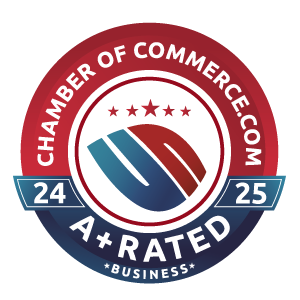General liability insurance is indispensable for businesses operating in Colorado, acting as a shield against potential financial setbacks stemming from injuries, damages, or failure of products and services to perform as expected. This insurance coverage is particularly crucial as it encompasses the costs associated with defending claims and lawsuits. For instance, if a customer were to slip and fall within a business premises, leading to injury, general liability insurance would cover the medical expenses and legal fees, thus protecting the business from bearing these costs out of pocket. The absence of such insurance could expose businesses to severe financial risks, potentially resulting in the cessation of operations or insolvency due to the inability to settle claims or judgments.
Moreover, the utility of general liability insurance extends beyond mere financial protection; it also fosters a sense of security among business owners, employees, and customers. Knowing that a business is insured contributes to a more stable and trustworthy business environment. This insurance not only safeguards the assets and continuity of the business but also reassures clients and partners of the business’s commitment to responsible and professional practices. Therefore, investing in general liability insurance is not just a regulatory or financial measure, but also a strategic move towards building a reputable and sustainable business in Colorado.
Understanding General Liability Insurance Requirements in Colorado
Navigating the landscape of general liability insurance requirements in Colorado involves understanding not only the basic coverage but also identifying additional policies that might be necessary for comprehensive protection. General liability insurance serves as a foundational layer, safeguarding businesses against claims of bodily injury, property damage, and advertising injuries. However, Colorado’s diverse business environment often demands more specialized coverage. Professional liability insurance, for instance, is crucial for businesses that provide services or advice, protecting against claims of negligence or malpractice. Similarly, property insurance protects the physical assets of a business, covering damages from events like fire or theft.
The Affordable Care Act introduces another layer of consideration for small businesses in Colorado by offering tax credits to those providing health insurance to their employees. This incentive aims to make healthcare more accessible to the workforce, encouraging small businesses to contribute positively to the health and well-being of their employees. Moreover, for businesses looking to further secure their operations against potential financial disasters, commercial umbrella insurance presents a viable option. This type of insurance extends coverage beyond the limits of general liability policies, offering an invaluable safety net in the face of claims that exceed primary policy boundaries. Understanding these requirements and options is essential for Colorado businesses aiming to maintain robust financial and operational health.
Factors to Consider When Selecting General Liability Insurance
Selecting the right general liability insurance for your Colorado business involves a multifaceted decision-making process that goes beyond just identifying potential liabilities. A thorough risk assessment is paramount in this process, where businesses meticulously analyze the specific risks associated with their operations, products, or services. This assessment should take into account the likelihood of accidents or injuries occurring on the business premises or as a result of its operations. For instance, a construction company faces different types of risks compared to a retail store, thus necessitating different levels of coverage and policy specifics. Additionally, the size of the business significantly influences the insurance needs. A larger enterprise may require a higher level of coverage due to its extensive operations and the corresponding increase in potential liabilities.
Beyond the immediate considerations of risk and size, businesses should also factor in the nature of their operations. For example, companies involved in industries with higher levels of risk, such as manufacturing or healthcare, may need more comprehensive coverage to protect against industry-specific liabilities. The evolving landscape of the business sector also demands that businesses regularly review and update their insurance policies. As a company grows or diversifies its services, its exposure to different liabilities may change, thus necessitating adjustments in its insurance coverage. Regular reviews ensure that a business remains adequately protected against claims, considering its current operational scope and the dynamic nature of business risks. This proactive approach to managing general liability insurance ensures that businesses in Colorado can continue their operations with confidence, knowing they are well-protected against unforeseen liabilities.
Comparing Insurance Providers and Coverage Options in Colorado
Choosing the right insurance provider and coverage options is a pivotal decision for any business in Colorado. The landscape of insurers is vast, with entities like Castle Pines Brokers offering a gateway to a plethora of commercial insurance carriers such as Allstate, Travelers, Progressive, and Liberty. This diversity allows Colorado businesses to select from a broad spectrum of policies that best suit their unique needs. Castle Pines Brokers offers a wide range of commercial insurance carriers in Colorado. However, the process of comparing these options requires a nuanced understanding of each policy’s offerings. Engaging with experienced insurance brokers can significantly ease this process. These professionals possess the expertise to dissect policy details, helping businesses to unravel the complexities of various insurance options. Their guidance can be instrumental in securing tailored insurance solutions that align precisely with the specific risks and requirements of a business.
Moreover, it’s imperative for Colorado businesses to meticulously explore the array of coverage options available to them. Beyond the standard general liability insurance, which serves as a foundational layer of protection, there are other critical types of coverage to consider. For instance, professional liability insurance addresses the financial fallout from errors or omissions in professional services, while product liability insurance is crucial for businesses involved in manufacturing or distributing products. Additionally, commercial auto insurance is essential for businesses utilizing vehicles for operational purposes. Each of these coverage types caters to different risk profiles and operational nuances, illustrating the importance of a comprehensive risk assessment to identify the necessary protections. For a construction firm, for example, general liability insurance might be augmented with policies covering construction-related risks. By thoroughly assessing and comparing these options, Colorado businesses can ensure they are adequately protected against potential liabilities.
Tips for Small Businesses in Colorado
For small businesses in Colorado, navigating the landscape of liability insurance requires a strategic approach to ensure both compliance with the law and optimal financial protection. While not all businesses are legally mandated to have liability insurance, certain industries and professions have specific requirements that must be adhered to. For instance, construction companies often need to have comprehensive general liability coverage due to the high risk of property damage and bodily injury on job sites. This type of insurance is not just a regulatory requirement but a critical safety net that can protect the business from potentially crippling legal fees and settlements.
Moreover, businesses in the retail, food services, real estate, and other sectors should consider liability insurance as a cornerstone of their risk management strategy. For example, a restaurant in Colorado could face claims ranging from food poisoning to slip and fall accidents within its premises. Having the right liability insurance in place can shield the business from financial losses stemming from these claims. Additionally, implementing robust quality control measures not only enhances a business’s reputation and operational efficiency but can also lead to lower insurance premiums. Insurers often recognize the reduced risk profile of businesses that proactively manage their risks and may offer more favorable terms as a result.
Available Resources and Support for Colorado Businesses
The Colorado Division of Insurance offers valuable information and resources for businesses seeking guidance on insurance requirements, coverage options, and regulatory compliance. Additionally, entities such as the U.S. Small Business Administration and the Colorado Small Business Development Center provide support, guidance, and potential tax credits to help Colorado businesses navigate the complex insurance landscape. Businesses can also benefit from personalized cost assessments, competitive quotes, and tailored insurance solutions through brokers like Castle Pines Brokers, ensuring comprehensive coverage at affordable costs.
In conclusion, general liability insurance is an indispensable tool for Colorado businesses, offering protection against a wide range of risks and liabilities. By understanding the requirements, considering essential factors, comparing providers and coverage options, and leveraging available resources and support, businesses in Colorado can make informed decisions to secure the best general liability insurance coverage tailored to their specific needs.










